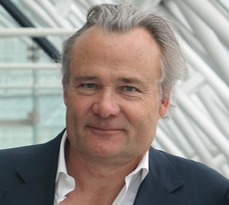Cambridge has been at the forefront of technology and life sciences innovation for centuries and is still forging ahead.
The historic success of Cambridge in advancing scientific and business frontiers is the subject of an article in IQ, a magazine published by the Cambridge Independent, written by Richard Watson and Bruno Cotta of the Entrepreneurship Centre at Cambridge Judge Business School.

“The expression ‘it’s in our DNA’ may have become a cliché, but when it comes to Cambridge, home to arguably the most notable tech and life sciences cluster in the world, it might actually explain much of our past, present and future success,” says the article, entitled “Cambridge.dna”.
Richard is Futurist-in-Residence and Bruno is Executive Director at the Entrepreneurship Centre.
The article in IQ traces Cambridge’s evolution as an innovation hub from the founding of the Cambridge Philosophical Society in the early 1800s; the Nobel Prize-winning discovery of the double helix structure of DNA in the 1950s; to pioneering work in the 1990s on DNA sequencing and world-leading efforts today on cell reprogramming, now attracting significant interest from industry and investors.
“We are entering an era in which some diseases may become a thing of the past, and our capability to both decode and determine human physiology and psychology so advanced, that the bigger questions ahead will be more about the philosophy of doing so safely and ethically for humanity,” the article says.

“As we look forward then to what might come next, in terms of our own possible or probable futures, it does seem that an ability to shape all our preferred futures may eventually be within reach and almost certainly ‘in our DNA’”.
The article in IQ also discusses the father-and-son team behind Shift Bioscience, a Cambridge startup seeking ways to return cells and tissues to a youthful state in order to address some 200 aging-related diseases.
In a separate article on the University of Cambridge website, co-founder Daniel Ives (an alumnus of the University of Cambridge) is featured in “Enterprising Minds”, an editorial series that Bruno Cotta helped to launch and continues to support.
“We’ve come a long way very quickly by embracing machine learning,” Ives says in the article entitled “Live long and prosper”.
“This powerful tool predicts a safe rejuvenation pathway and over the next 18 to 24 months we will be using our technology to prove out this prediction in human cells. If our prediction fails, we build that failure into a new predictive model, so every experiment gets us closer to the answer.”


